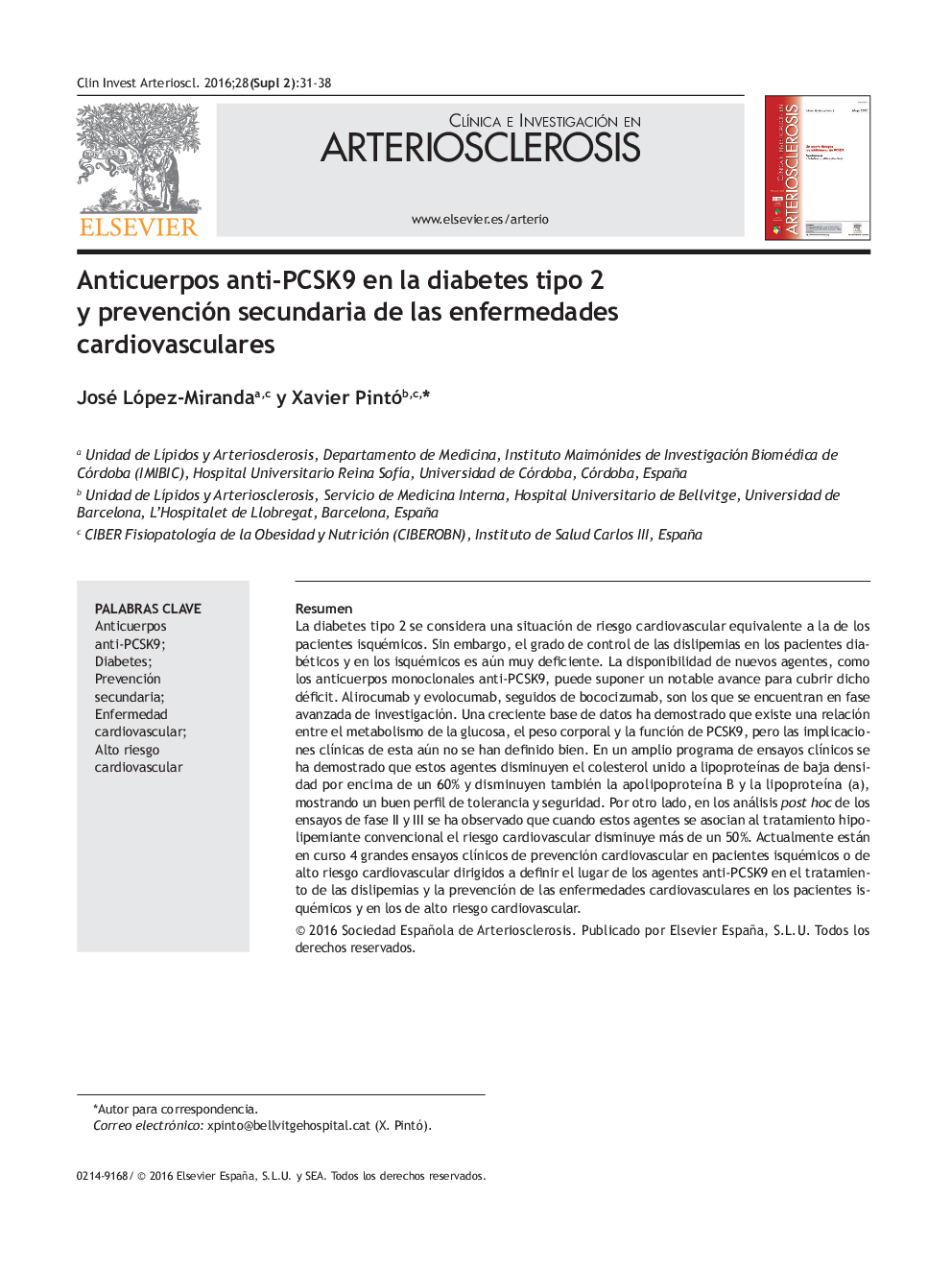| Article ID | Journal | Published Year | Pages | File Type |
|---|---|---|---|---|
| 5593073 | Clínica e Investigación en Arteriosclerosis | 2016 | 8 Pages |
Abstract
Patients with type 2 diabetes are considered to have the same cardiovascular risk as patients with ischemia. However, the degree of lipid control in diabetic and ischemic patients remains highly deficient. The availability of new agents, such as anti-PCSK9 monoclonal antibodies, could represent a notable advance in meeting this unmet need. Alirocumab and evolucumab, followed by bococizumab, are currently under the advanced phase of research. A growing database has demonstrated a relationship between glucose metabolism, body weight and PCSK9 function, but the clinical implications of this relationship have not been well defined. A broad programme of clinical trials has demonstrated that these agents decrease low-density lipoprotein cholesterol by more than 60% and also decrease apolipoprotein B and lipoprotein (a), showing a good tolerability and safety profile. In addition, post hoc analyses of phase 2 and 3 trials have observed that when these agents are associated with conventional lipid-lowering they reduce cardiovascular risk by more than 50%. Currently, 4 large clinical trials of cardiovascular prevention are underway in patients with ischemia or high cardiovascular risk. The aim of these trials is to define the role of anti-PCSK9 agents in the treatment of dyslipidemia and the prevention of cardiovascular disease in patients with ischemia and high cardiovascular risk.
Keywords
Related Topics
Life Sciences
Biochemistry, Genetics and Molecular Biology
Physiology
Authors
José López-Miranda, Xavier Pintó,
